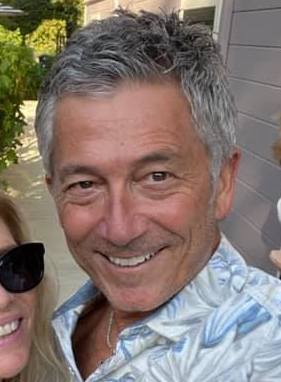“In all of the legal maneuvering something has gotten lost and that something is the truth.” ~ Jake Brigance, A Time to Kill
I’m a white man living in middle class America. I was born to hard working parents and grandparents who did their best to build a life for me that was better than theirs. The importance of family was constantly emphasized. I’m doing my best to continue that tradition and lengthen the legacy.
Throughout my life I’ve lived in communities of like-minded people. My ignorance of black communities wasn’t by design but rather the byproduct of the life I lived and in many ways continue to live. As a result I’m naïve to the real plight of an African-American.
My earliest experiences with a black family were those shared with the family of Byron Pitts, the ABC News reporter who has previously been with CBS News and 60 Minutes. Byron and I were classmates at Archbishop Curley High School and through a common friend, the wonderful Joe Stumbroski, we became friends.
Byron’s family, like mine, seemed determined to provide a better life for him. His older brother would sometimes drive us to school as did his wonderful mother – a ball-buster of a lady, but certainly a loving and giving one as well. Other than the color of their skin, the Pitts family wasn’t much different than mine.
Or so I thought…
Our friendship led me to believe that I understood the black community. I could look in the mirror with conviction and see the eyes of a teenager devoid of racial prejudices. I could be a friend with anyone who treated me with mutual respect and where common interests existed, without parameters, without boundaries.
Unfortunately I saw very little of Byron after high school save for a class reunion or two. But I am proud of his accomplishments and I can only imagine the pride that his Mom has enjoyed.
But since my time with Byron, I’ve worked with and have become friends with several black men and women who I’d like to think I view through colorless eyes.
Admittedly those friendships aren’t deep. I don’t really know any black families – at least not in the way I know those of my Caucasian friends. I know little of their upbringing, their struggles and success stories and the obstacles they have faced as African-Americans.
I once thought that everyone, regardless of race, sex, religion, etc., has an opportunity in this country to better themselves and if they choose a path that fails to do that, it’s on them. They only have themselves to blame.
I later learned it’s not quite that simple.
ESPN’s, OJ: Made in America, reminded me of that.
The Worldwide Leader did an amazing job of walking you through not only OJ Simpson’s life, they exquisitely revisited the world around OJ and took the viewer on a journey through the belly of America and the societal issues that enveloped the time, beginning with Simpson’s formative years, his disassociation with the black community, his emergence as a celebrity, the racial tensions in Los Angeles and their subsequent influence on Simpson’s trial.
And of course, the sordid aftermath.
I once thought that Simpson’s acquittal was the byproduct of severe incompetence on the part of the prosecutors. But it was much, much more than that.
It begins with Simpson’s insatiable quest to immerse himself within the white community. He didn’t want to be seen as a black man. Instead he wanted to be liked by everyone and in his determination to do so he was able to mask his disingenuous, self-serving motives. His own words, “I’m not black, I’m OJ” tell you all you need to know about his mindset.
He refused to be denied.
Things came easy for OJ. He got what he wanted whenever he wanted and the world was drawn into his. He was playing the game of life his way and just like on the football field, he seemed to always be a step ahead.
He relished in it – intoxicated by it. He was a fame and fortune junkie and when the fame and the fortune and the adulation weaned, he needed it no less. And that set the stage for problems for this selfish egomaniac that once stole his best friend’s girl, was openly adulterous and decorated his home as a shrine to himself.
Enter the black community.
As a white man, I can try and place myself in the shoes of a black man in a black community struggling with black community issues. I can try to have sympathy, empathy, compassion and understanding when trying to find a connection to the difficulties of life within that community.
But I can’t. I can’t live it. I can’t pretend to have generations of family who suffered through racial oppressiveness. I can’t see the world through black eyes. But ESPN did an amazing job of showing the racial tensions in LA through the eyes of the African-American community.
I once thought that blaming the trials and tribulations endured by past generations was a cop out – an excuse for one’s own inabilities or lack of ambition, regardless of color. It’s easier to complain and desire handouts than to perspire and standout.
But my community never suffered from amped up policemen who seem compelled to rule with a heavy hand, and in the case of Rodney King a heavy stick. It’s more difficult for a black man to rise above it due to the ebbs and flows of his community.
And during the Simpson trial, the black community, despite OJ’s disassociation with it, was by far the biggest influencer of the unjust acquittal – an acquittal seen through black eyes and rendering the brutal butchering of Nicole Brown Simpson and Ron Goldman as nothing more than collateral damage of a community’s plight.
And the one who fanned the flames of that plight, the community’s insatiable appetite for retribution, was none other than Johnnie Cochran.
Cochran was an attorney who was a civil rights activist and an outspoken defendant of the black community and their struggles against police brutality. Naturally he was incensed by the acquittals of the four policemen involved in the attack on King, acquittals that triggered riots in LA in 1992.
The wounds of those riots and the King trial had yet to heal when Cochran decided to use the still heightened tensions to his advantage during the defense of OJ Simpson. He believed that by playing the race card, portraying OJ as yet another black scapegoat and selecting the right jury with surgical precision, he could overcome a mountain of evidence that screamed of Simpson’s guilt.
And in doing so, Cochran forcefully ripped the bandages off those old communal wounds and created a racial divide in LA and to a certain degree, the entire country. The jury was blinded by their prejudices. The prosecutors didn’t stand a chance, particularly when the grotesque Nazi-like racism of an LAPD detective, Mark Fuhrman, was shared with the already amped up jury.
The proverbial bell was rung so loud that the jury could barely hear or consider any of the damning evidence that screamed for a conviction. It could be argued that Cochran too, blinded by his own prejudices or overt convictions, merely viewed Simpson as but a pawn in his need to satisfy an insatiable thirst for redemption in the black community.
And the biggest losers were The Browns, The Goldmans and the truth.
Some former friends of Simpsons come forth during the ESPN five-part documentary expressing their beliefs of OJ’s guilt. His agent Mike Gilbert claims he will go to his grave knowing OJ did it. Jurors, who in so many words admit to being vindictive as part of a twisted effort to defend the black community, express remorse.
They failed to seek the truth.
During the years after the trial, Simpson shows his true colors as a philanderer, a thief and a self-absorbed pariah. The viewer is left feeling angry with bitter contempt towards Simpson and to a lesser degree his impressive collection of defense lawyers commonly referred to at the time as “The Dream Team”.
Yet they left the Browns and Goldmans with nothing but nightmares, and no closure.
To ESPN’s credit they do open eyes. They allow us all to better understand why things went down as they did during the Simpson trial. They helped white America, as best as they could, walk in the shoes of black America at that time.
As the final segment reached its end, I couldn’t help but to think back to one of my favorite movies, A Time to Kill.
If you haven’t seen A Time to Kill and plan on watching it someday, don’t watch the video segment below. It will spoil your enjoyment of the movie. But if you have seen it, watch this clip again and absorb the powerful message.
Only this time, think of the Simpson case and flip the black and white roles.
And then ask, “What if Nicole Brown Simpson was black?”











